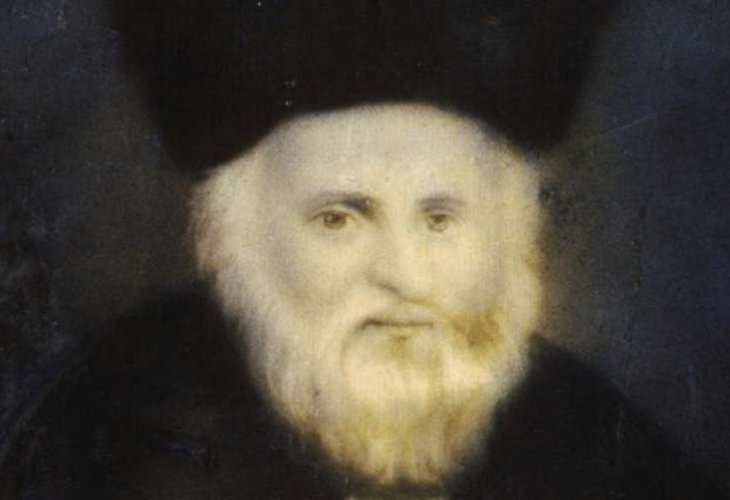Torah Personalities
The Genius of Vilna: Rabbi Eliyahu’s Enduring Influence on Jewish Thought
More than two centuries after his passing, the Vilna Gaon’s brilliance continues to shape Torah study, Jewish values, and the dream of returning to the Land of Israel
 The Vilna Gaon
The Vilna GaonA Life Devoted Entirely to Torah
This year marks the 223rd yahrzeit of Rabbi Eliyahu of Vilna, known as the Vilna Gaon or simply “the Gaon.” He was born in 1720 in the town of Seltz near Brisk, in what was then Russia. Some sources identify his birthplace as Lithuania. He passed away on Chol Hamoed (the intermediary days of) Sukkot 1797 and was buried in Vilna.
Rabbi Eliyahu, son of Rabbi Shlomo Zalman Kremer, is often referred to by the acronym "Gra" the Gaon Rabbi Eliyahu. Due to his unmatched Torah scholarship, he is known simply as “the Gaon.”
He was a halachic (Jewish legal) authority, biblical commentator, and kabbalist and is considered one of the greatest Torah scholars in Jewish history. The Gaon was a fierce intellectual force and became the central figure in the opposition to the rising Hasidic movement.
By the age of six, he was already recognized as a prodigy, delivering complex Torah discussions at Vilna’s Great Synagogue. He married Chana, and they had eight children. His wife fully supported his spiritual mission, taking on all family responsibilities so that he could devote himself completely to Torah study.
Although he lived most of his life in Vilna, the Gaon repeatedly declined formal rabbinic positions, possibly fearing they would distract from his learning. Still, the community provided him with a small monthly stipend, which he regularly gave to the poor. Eventually they began transferring the funds directly to his wife to ensure they would be used for their household needs.
Tireless Devotion, Deep Insight
The Vilna Gaon became famous for his extraordinary diligence. His sons testified that he slept no more than two hours a day, dedicating every waking moment to Torah. His leading student, Rabbi Chaim of Volozhin, wrote that when the Gaon struggled with a difficult question, he would refrain from eating for days until he found a resolution. He grew gaunt during such periods, consumed entirely by the pursuit of truth.
At one point in his life, the Gaon left Vilna and traveled through Poland and Germany, possibly reaching Amsterdam and even England. He made an attempt to immigrate to Eretz Yisrael, writing a powerful letter from the road in which he called it “the beloved Land of Israel, beloved by Hashem, yearned for by both heavenly and earthly beings.” He reached the Netherlands but was ultimately forced to turn back. Despite this, he urged his students to make the journey in his stead. In the early 1800s, eleven years after his passing, fourteen of them led a group to settle in Tzfat and Jerusalem, where they found only thirty Jews. Their arrival inspired a wave of aliyah (immigration to Israel) in the years that followed.
Writings That Shaped Generations
Although none of the Gaon’s writings were published during his lifetime (aside for his declarations against Hasidism) his teachings were preserved through detailed notes and transcriptions by his students. Over 70 works are attributed to him. The book Aliyot Eliyahu includes a list of 54 titles associated with the Gaon.
His commentaries span the entire Tanach and include:
Aderet Eliyahu on the Torah
Aderet Eliyahu on the Prophets and Writings
A mystical commentary on Psalm 104, printed at the end of Brit Yitzchak
A commentary on Mishlei (Proverbs), compiled by Rabbi Menachem Mendel of Shklov from lessons he heard directly from the Gaon. This work is a classic in mussar (ethical instruction) in many yeshivot
A symbolic commentary on the Book of Yonah, presenting it as a metaphor for body and soul
A comprehensive interpretation of Shir Hashirim (Song of Songs), seeing it as an allegory between God and the Jewish people
Three commentaries on Megillat Esther: one based on the straightforward meaning (peshat), one on allusion (remez), and one on mysticism (sod)
A commentary on Megillat Ruth, though its authorship is debated, with some scholars suggesting it includes contributions from Rabbi Chaim of Volozhin and his son, Rabbi Yitzchak
More than 200 years after his death, the Vilna Gaon remains one of the most influential figures in Torah learning and an enduring symbol of what it means to live a life of Torah and truth.

